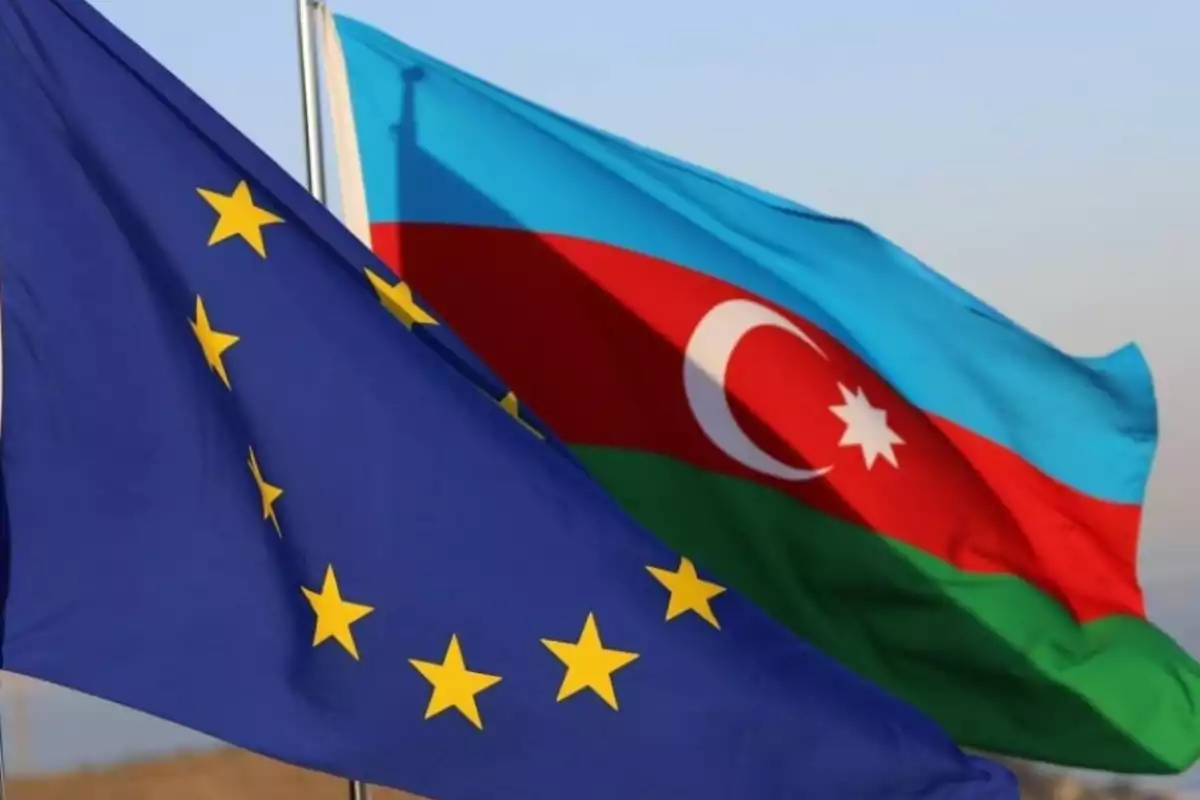
Photo credit: Azertac
By Tural Heybatov
The European Union and Azerbaijan have officially agreed to resume negotiations on a new Partnership and Cooperation Agreement-a long-overdue step toward revitalizing a relationship that had drifted into uncertainty. This announcement came after a crucial meeting in Baku between Kaja Kallas, the new EU High Representative for Foreign Affairs and Security Policy and Vice-President of the European Commission, and Azerbaijani President Ilham Aliyev.
Energy cooperation and the development of transport corridors were key topics discussed. However, the significance of this visit goes far beyond technical agreements. It represents a conscious effort to rebuild ties that were badly strained during Josep Borrell’s tenure. Under Borrell, the EU's foreign policy approach toward Baku was marked by pressure tactics and double standards-an ineffective strategy that only pushed Azerbaijan further away.
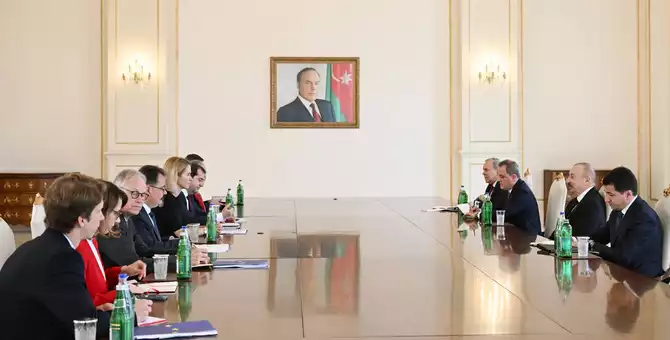
President of Azerbaijan Ilham Aliyev received Kaja Kallas, High Representative of the European Union for Foreign Affairs and Security Policy and Vice-President of the European Commission on April 25. Photo credit: president.az
Unlike many other members of the EU’s Eastern Partnership, Azerbaijan possesses genuine sovereignty and substantial economic power. It is not a petitioner seeking favors from Europe, nor a burden to be managed. Rather, Azerbaijan stands ready to offer solutions and to contribute meaningfully to shared goals. This is the type of partner Europe desperately needs today. The understanding of this reality, once overlooked, now seems to be returning.
During her meeting with President Aliyev, Kaja Kallas made it clear: the European Union highly values its relationship with Azerbaijan and is eager to deepen it. Such recognition is not merely diplomatic flattery-it reflects a growing awareness in Brussels that Azerbaijan’s role is vital to Europe’s strategic interests.
If the obstacles created by third-party influences can be cleared, there is every reason to believe that Azerbaijan and the EU can return to their previous, ambitious agenda. The prospects for this partnership are bright. Europe, facing profound internal and external challenges, needs a trustworthy, sovereign partner like Azerbaijan.
At the meeting, Kallas explicitly referred to Azerbaijan as a reliable partner for ensuring Europe’s energy security. She praised the successful and effective cooperation between Azerbaijan and the EU in the energy sector-a cooperation that has only gained importance in the wake of Europe’s attempts to diversify its energy sources.
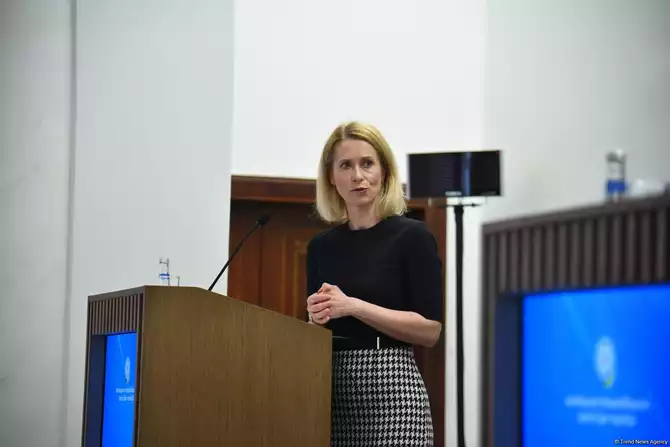
Photo credit: Trend
President Ilham Aliyev, for his part, detailed Azerbaijan’s contributions to European energy security, noting that the country currently supplies natural gas to ten European nations, including eight EU member states. He reminded his European guest that Azerbaijan was among the first countries to deliver gas to Europe, an achievement built on years of careful planning and investment.
The success of the Southern Gas Corridor Advisory Council exemplifies the productive dialogue between Azerbaijan and the EU. And beyond fossil fuels, Azerbaijan offers significant opportunities in renewable energy, particularly in the areas of wind power and the immense, still underutilized, energy potential of the Caspian Sea.
The conversation in Baku also touched on Azerbaijan’s critical role in the development of the Middle Corridor-the major trans-Eurasian route connecting Central Asia to Europe-and a massive project aimed at transporting electricity from Central Asia to European markets.
The EU’s new foreign policy leadership appears determined to move away from the counterproductive tactics of the past. Borrell’s attempt to marginalize Azerbaijan was not only strategically misguided but ultimately impossible. Azerbaijan’s geography, economic capabilities, and political willpower make it indispensable. Efforts to bypass or sideline Baku inevitably end in failure.
The numbers tell their own story. In 2024, trade turnover between Azerbaijan and the European Union reached approximately $20 billion. The momentum has continued into 2025: in the first two months of the year, bilateral trade rose by an impressive 40.1 percent compared to the same period in 2024. Azerbaijan’s exports to the EU increased by 40.7 percent, while imports from the EU grew by 36 percent. In January and February alone, EU countries accounted for 74.6 percent of Azerbaijan’s total exports and 11.7 percent of its imports.
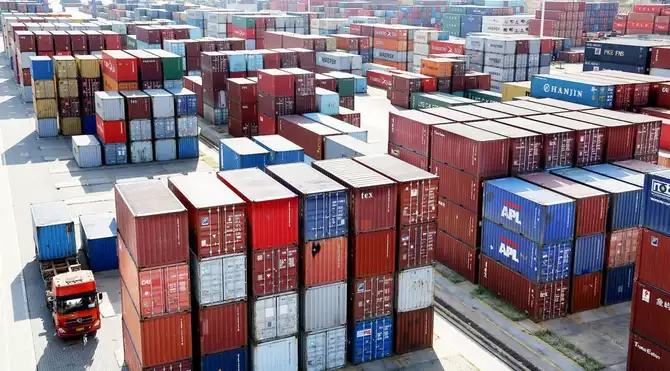
Photo: Shutterstock
These figures reflect not just strong trade ties, but also a deepening mutual dependence that should inform future policymaking in Brussels.
The foundation for this partnership was laid long ago. In 1999, the initial agreement between Azerbaijan and the EU was signed. Negotiations for a new comprehensive agreement began in 2017, and over the years, consensus has been achieved on nearly 90 percent of the issues under discussion. Only a few areas-primarily related to trade and economic policy-remain unresolved.
At a joint press conference with Kallas in Baku, Azerbaijani Foreign Minister Jeyhun Bayramov expressed optimism that the new agreement could be expanded further, setting the stage for a future-oriented relationship based on mutual benefits rather than political posturing.
The reset in EU-Azerbaijan relations should also influence Brussels’ approach to the peace process between Azerbaijan and Armenia.
Thus far, EU attempts to mediate between Baku and Yerevan have often done more harm than good. Previous interventions, including those under Borrell’s leadership, failed to appreciate the region’s realities and instead exacerbated tensions.
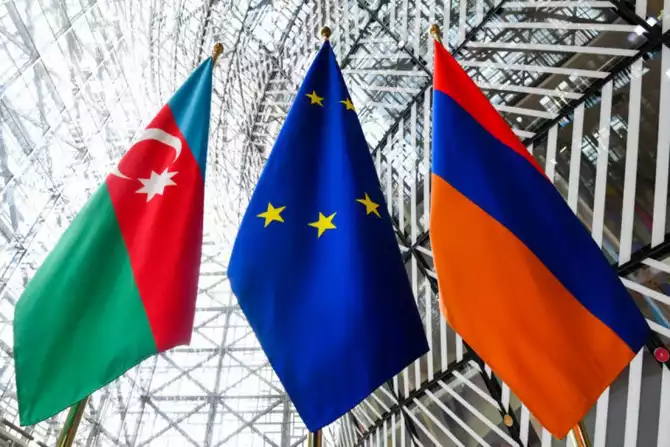
Fortunately, Kaja Kallas appears to be charting a different course. In Baku, she declared that the European Union "supports the efforts of Azerbaijan and Armenia aimed at achieving a sustainable and lasting peace." She also welcomed the recent agreement on a draft peace treaty and expressed hope for the next steps in the process.
This is a crucial shift. A truly balanced and pragmatic EU approach to the South Caucasus would not only strengthen peace efforts but also bolster Europe’s own credibility as a global diplomatic actor.
In Azerbaijan, there is cautious but growing optimism about the future of Brussels-Baku relations. The stakes are high. For Baku, this is not merely about restoring dialogue; it is about building a forward-looking strategic partnership rooted in mutual respect, shared interests, and a genuine commitment to regional stability and prosperity.
Europe, too, has much to gain. A reset with Azerbaijan offers a rare opportunity to correct past mistakes, deepen energy and trade cooperation, strengthen regional connectivity, and position the EU more effectively in the changing geopolitical landscape.
Embracing Azerbaijan is not just smart diplomacy-it is a strategic necessity for Europe’s future.
Share on social media